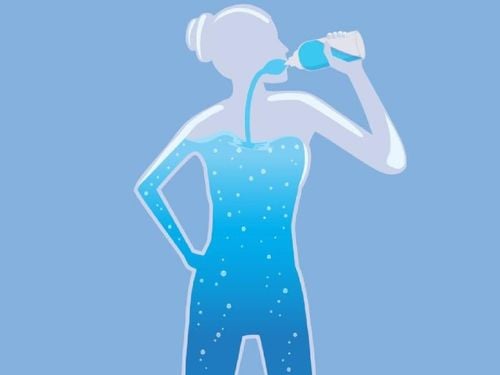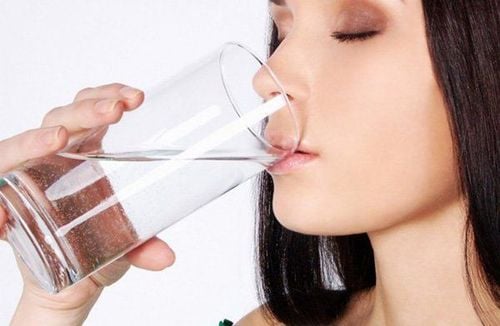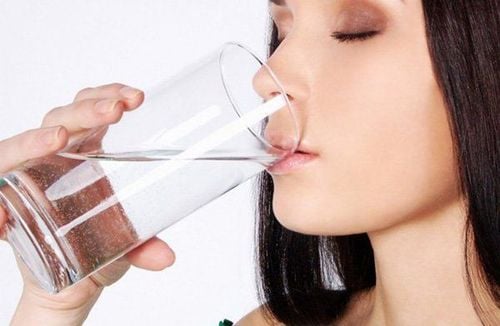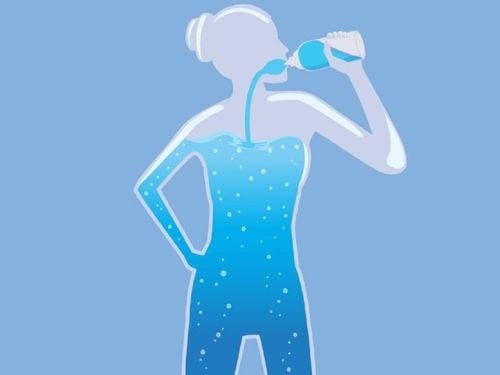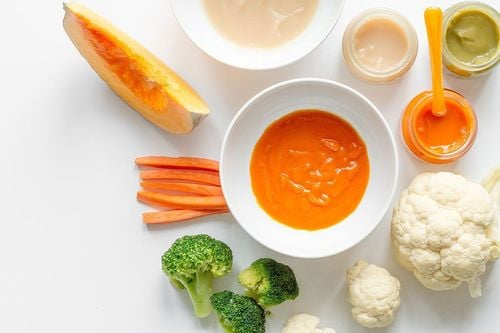This is an automatically translated article.
Water plays a particularly important role for the body and digestive system, whereby a child's water needs are divided based on weight with the milestones of 10kg, 20kg. So how much water should a baby drink each day? Parents, please find out right in the following article.
1. How much water should children drink each day?
The essential amount of water needed to provide children each day is described as follows:| Cân nặng | Lượng nước cần bổ sung |
| 1 - 10kg | 100ml/kg |
| 11 - 20kg | 1000ml/ngày + 50ml cho mỗi kg tăng thêm (mốc từ 11kg) |
| Trẻ 21kg trở lên | 1.500 ml/ngày + 20 ml/kg cho 1 kg cân nặng tăng thêm(mốc từ 21 kg đến khoảng 41 kg) |
How much water do babies need to drink? For weaning children weighing 1-10kg, they need to provide 100ml/kg of water. For children 11 - 20 kg, it is necessary to provide 1000ml of water and add 50ml for each additional kg of weight, starting from 11kg.
How much water should a 9 month old baby drink? 9-month-old children are in the weight range from 1 to 10 kg, so they need to supplement with 100ml/kg of weight.
How much water should a 1 year old child drink per day? For 1-year-old children under 10kg, it is necessary to supplement 100ml/kg of weight, when children reach 11kg or more, add 1000ml plus 50ml for each additional kg (from the 11kg mark).
2. The role of water with the body
Water is the basic component in the human body with a ratio of up to 60 - 70% of body weight. Humans can go without food for a few days to a few weeks, but cannot go without water for a day. A dehydration of 5 - 10% is considered severe dehydration, and 15 - 20% can be life-threatening.
In the human body, water is considered the solvent for most metabolic processes, especially the hydrolysis and dissolution of nutrients such as amino acids, glucose, proteins, lipids.
Water helps regulate body temperature, keeping body temperature within the allowable limits regardless of changes in the living environment through the process of excretion through urine and sweat. In addition, water also helps reduce the viscosity of the blood, helping blood circulation.
3. Where is water in the body?
In the human body, water exists in two forms as "free water" in the blood, lymph, cerebrospinal fluid and "bound water" which is kept around large organic particles such as protid, glucide in it. Each gram of protein and glucide holds 3 grams of water.
When the body is dehydrated, the volume of protein molecules, glucide, etc. is reduced, causing cells not to keep their normal shape, thereby causing body weight to decrease, skin also becomes should be wrinkled.

Vấn đề trẻ em cần uống bao nhiêu nước mỗi ngày được nhiều bậc cha mẹ quan tâm
4. What is the level of water excretion?
Water is mainly excreted through the urine, in which, the average adult excretes 1 - 1.5 liters of urine per day. In addition, water is also excreted through the skin permeation 450ml/day, through the breath 250-350ml/day, through sweat in hot weather can be up to 2-3 liters/hour, even 3-3.5 liters/day. hour.
Excretion through respiratory tract, genital tract, menstruation, semen accounts for a negligible proportion. For lactating women, each day also secretes 500-600 ml of milk, which is mainly water.
In short, water is very important for the body, parents need to add enough water according to the child's weight and needs, to avoid letting the child fall into a serious water shortage that will be life-threatening.
For more nutritional knowledge and child care for each age, parents should regularly visit the website vimec.com and make an appointment with the leading doctors, pediatric and nutrition experts of the National General Hospital. Vinmec when needing advice on children's health.





